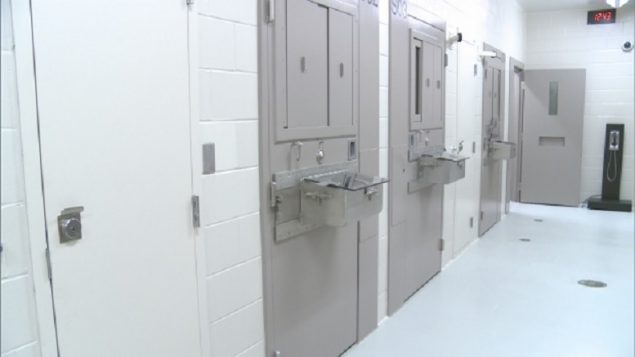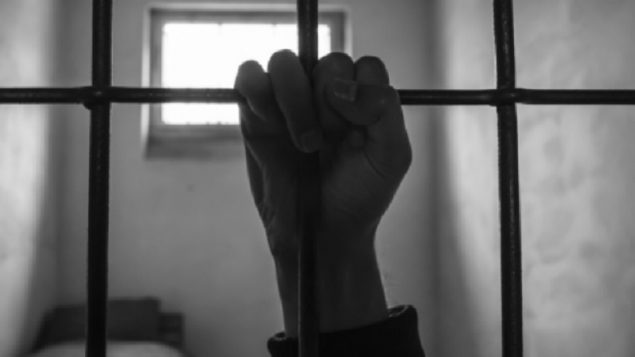Just a month after a British Columbia judge ruled that indefinite solitary confinement in prisons was unconstitutional, the federal government is appealing the ruling.
In his ruling the B.C. Supreme Court judge said that such confinement “places all Canadian federal inmates subject to it at significant risk of serious psychological harm, including mental pain and suffering, and increased incidence of self-harm and suicide,”
On Friday (Feb. 16) the Attorney General of Canada filed notice of an appeal to overturn the ruling.
RCI: Jan 18/18: confinement ruled unconstitutional

Doors to cells in a jail segregation unit at the Northeast Nova Scotia Correctional Facility in Priestville, N.S. In January 2018, a B.C Justice ruled indefinite solitary was unconstitutional. In December 2017 an Ontario Superior Court Justice also rejected a government argument that guard interaction with prisoners in solitary was enough to meet international norms of human contact. PHOTO : Stephanie Blanchet/Radio-Canada
Several studies have indicated that such isolation of prisoners, also known as “administrative segregation” can be harmful to the mental state of prisoners even after relatively short periods of mere days.
The BC Justice said the laws regarding solitary confinement were unconstitutional in that they permit prolonged, indefinite solitary confinement, fail to provide independent review of segregation placements and deprive inmates of the right to counsel at segregation review hearings. The regime violates prisoners’ Charter section 7 rights because it places prisoners at increased risk of self-harm and suicide and causes psychological and physical harm. The Court further held that the laws were unconstitutional because they discriminate against the mentally ill and disabled, and against Indigenous prisoners.
The original challenge had been brought by the B.C Civil Liberties Association and the John Howard Society of Canada.
In reacting to the news of the federal appeal, Josh Paterson, Executive Director of the BCCLA, stated: “We find it shocking that our federal government has chosen to appeal this decision when the government came into office on a promise to put an end to indefinite solitary confinement. Instead, this appeal shows they intend to fight to save a system that breaks the law and makes our society less safe.”
Catherine Latimer, Executive Director of John Howard Society of Canada, states: “The problems with solitary confinement have been obvious for decades…… It is deeply unfortunate that, rather than accept that truth and work to correct it, the government wishes to ignore it.”
Caily DiPuma, Acting Litigation Director for the BCCLA has indicated the groups intend to fight the government appeal of the BC Supreme Court judgement.
In December 2017, an Ontario Superior Court justice also ruled that isolating a prisoner for more that five days was unconstitutional as the system lacks proper safeguards. However he suspended his ruling for one year to give Parliament time to legislate new rules saying an immediate suspension of the practice would be too disruptive.







For reasons beyond our control, and for an undetermined period of time, our comment section is now closed. However, our social networks remain open to your contributions.